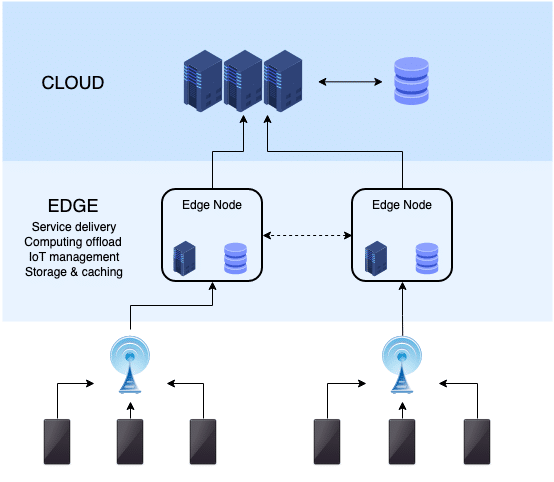Practical Application Of Edge Cloud Computing
Edge cloud computing has emerged as a game-changer in the world of technology, offering a decentralized approach to data processing and storage.
By bringing computing resources closer to the network’s edge, edge cloud computing enables faster response times, reduced latency, and enhanced real-time decision-making.
This revolutionary concept has practical applications across various industries, from IoT and autonomous vehicles to retail, healthcare, and industrial automation.
With its ability to handle data processing and analysis at the edge, edge cloud computing is transforming how businesses operate, providing them with increased efficiency, improved user experiences, and new opportunities for innovation.
This article will explore the practical applications of edge cloud computing and understand how it is revolutionizing industries worldwide.
Practical Application of Edge Cloud Computing
Edge cloud computing refers to the decentralized approach of processing and storing data closer to the network’s edge rather than relying solely on centralized cloud infrastructure. This concept brings numerous practical applications across various industries.
Let’s explore some of the practical applications of edge cloud computing:
Internet of Things (IoT)
Edge cloud computing plays a crucial role in IoT deployments. By placing computing resources closer to IoT devices, data processing and analysis can be performed in real-time, reducing latency and enabling faster decision-making. For example, edge computing in smart homes can process data from sensors and devices locally, allowing for immediate response and automation without relying on a centralized cloud.
Autonomous Vehicles
Edge cloud computing is vital for the development of autonomous vehicles. The massive amount of data generated by sensors and cameras in self-driving cars requires real-time analysis and decision-making. Edge computing enables the processing of this data locally, reducing latency and ensuring rapid response, which is critical for the safety and functionality of autonomous vehicles.
Video Surveillance
Edge cloud computing is highly beneficial in video surveillance systems. Processing video data near the surveillance cameras at the edge reduces the need to transmit large amounts of data to a centralized cloud. This approach improves real-time monitoring, minimizes network congestion, and enables faster analysis of video feeds for security purposes.
Retail and E-commerce
In retail, edge cloud computing enables personalized and immersive customer experiences. By analyzing customer data and preferences locally, edge computing can deliver real-time recommendations, targeted advertisements, and optimized inventory management. Additionally, edge computing supports faster and more efficient e-commerce transactions by reducing latency and enhancing the shopping experience.
Healthcare
Edge cloud computing has significant implications in healthcare. It allows for real-time monitoring and analysis of patient data, enabling remote patient monitoring, telemedicine, and immediate response to critical situations. Edge computing also ensures data privacy and security by minimizing the transmission of sensitive patient information to centralized cloud systems.
Industrial Automation
Edge cloud computing enables real-time monitoring and control of machines and processes in industrial settings. By analyzing data locally, edge computing improves operational efficiency and predictive maintenance and reduces downtime. It also facilitates faster response to anomalies and enables timely adjustments in production processes.
Gaming and Augmented Reality (AR)
Edge cloud computing enhances the gaming and AR experiences by reducing latency and improving performance. Offloading processing tasks to edge servers enables real-time rendering, seamless multiplayer experiences, and immersive AR interactions, making gaming and AR applications more responsive and engaging.
Edge Cloud Computing – What Experts Think!
Edge Computing has emerged as a prominent concept in the technology sector, especially with the proliferation of Internet of Things (IoT) devices and the exponential growth of data generated by these devices.
As more devices become connected and generate massive amounts of data, traditional cloud computing architectures face challenges in processing and analyzing this data promptly and efficiently.
As the technology sector evolves, Edge Computing is expected to play an increasingly significant role in handling the growing data demands and enabling the next generation of applications and services.
If you want to survive in the ever-changing digital industry, edge cloud computing is the rope that will help you survive the fall. To learn more, seek guidance from experts in edge cloud computing in Singapore.
In conclusion, edge cloud computing will offer solutions for businesses to overcome data processing challenges, reduce latency, and capitalize on the opportunities offered by the IoT and data-driven technologies.


























